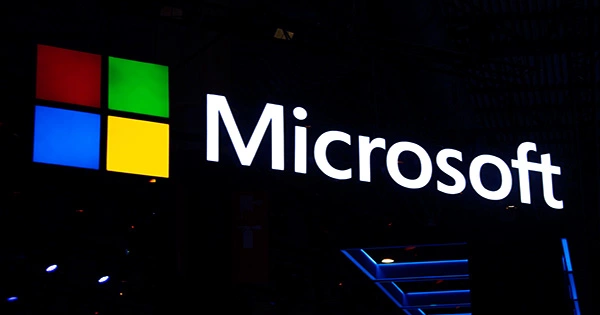The UK’s Competition and Markets Authority (CMA) has rejected Microsoft’s $68.7 billion acquisition of Activision Blizzard. The CMA has decided that the transaction might “alter the future of the fast-growing cloud gaming market, leading to reduced innovation and less choice for UK gamers over the years to come” after months of analysis including 3 million documents from Microsoft and Activision as well as more than 2,100 letters from the general public.
The ruling is a setback to Microsoft’s intentions of acquiring Activision Blizzard, and if an appeal is rejected, it will probably prohibit the corporation from concluding its significant transaction.
“Microsoft has a strong position in cloud gaming services, and the evidence available to the CMA showed that Microsoft would find it commercially beneficial to make Activision’s games exclusive to its own cloud gaming service,” the CMA writes.
According to the CMA, Microsoft owns 60 to 70% of worldwide cloud gaming services, and controlling Call of Duty, Overwatch, and World of Warcraft would give Microsoft a huge dominance in the cloud gaming industry.
Microsoft made an effort to allay worries about cloud gaming prior to making this choice. Following a similar agreement with Nintendo in December, the software giant secured cloud gaming agreements with Boosteroid, Ubitus, and Nvidia to allow Xbox PC titles to run on these competing cloud gaming platforms. If the agreement is authorized by authorities, these 10-year contracts also include access to Call of Duty and other Activision Blizzard titles.
The CMA claims to have looked at these agreements but finds “a number of significant shortcomings” in the cloud gaming services they offer. According to the CMA, the agreements are “too limited in scope,” with models requiring players to obtain the right to play games “by purchasing them on certain stores or subscribing to certain services.” The agreements did not include agreements for Microsoft to provide access to these games in competitor multi-game subscription services, nor did they cover the option for rivals “to offer versions of games on PC operating systems other than Windows.”
In addition, the CMA stated that the agreements will “standardize the terms and conditions under which games are available,” as opposed to open competition in the cloud gaming sector. “Without the merger, we concluded that Activision games would become available on cloud gaming services in the UK in the near future.”
Last month, the CMA originally agreed with Microsoft on concerns about Call of Duty on PlayStation, pointing out that it would be expensive for Microsoft to exclude PlayStation from the successful brand. However, the regulator claims it examined whether the advantages of having Activision’s content on Game Pass exceeded the worries about cloud gaming in the UK. This left certain cloud gaming issues on the table.
“Microsoft engaged constructively with us to try to address these issues, and we are grateful for that, but their proposals were not effective to remedy our concerns and would have replaced competition with ineffective regulation in a new and dynamic market,” says Martin Coleman, chair of the independent panel of experts conducting the investigation.
“We remain fully committed to this acquisition and will appeal,” Microsoft president Brad Smith tells The Verge in a statement. “The CMA’s decision rejects a pragmatic approach to addressing competition concerns and discourages technological innovation and investment in the UK.” We have already inked commitments to make Activision Blizzard’s popular games available on an additional 150 million devices, and we remain committed to enforcing these agreements through regulatory means. We’re especially concerned that, after much consideration, this choice appears to represent a faulty knowledge of this industry and how the key cloud technology operates.”
In a Wednesday email to staff members, Activision Blizzard CEO Bobby Kotick states that the business has already begun work on an appeal. Together with Microsoft, we can and will challenge this ruling, and we’ve already started the process of filing an appeal with the UK Competition Appeals Tribunal, according to Kotick. “The facts are on our side: this deal is good for competition,” they say. “We’re confident in our case.”
Microsoft’s appeal will delay the company’s attempts to close this purchase by the end of July. Microsoft will now be compelled to negotiate an extension to the merger agreement because it had initially intended to finalize the transaction by July 18th.
In a Wednesday email to staff members, Activision Blizzard CEO Bobby Kotick states that the business has already begun work on an appeal. Together with Microsoft, we can and will challenge this ruling, and we’ve already started the process of filing an appeal with the UK Competition Appeals Tribunal, according to Kotick. “The facts are on our side: this deal is good for competition,” they say. “We’re confident in our case.”
Microsoft’s appeal will delay the company’s attempts to close this purchase by the end of July. Microsoft will now be compelled to negotiate an extension to the merger agreement because it had initially intended to finalize the transaction by July 18th.
If Microsoft’s CMA appeal is denied or it does not receive clearance from other agencies, it will be required to pay Activision $3 billion in breakup costs.
The acquisition has been authorized by regulators in Saudi Arabia, Brazil, Chile, Serbia, Japan, and South Africa. The EU is expected to make a judgment by May 22nd, with Reuters reporting last month that the merger is likely to be allowed by EU authorities in light of the license deals with Nvidia and Nintendo.
The Federal Trade Commission (FTC) in the United States is also investigating Microsoft. Last year, the FTC filed a lawsuit to prevent Microsoft from acquiring Activision Blizzard, and the inquiry is still ongoing. An evidentiary hearing is scheduled for August 2nd, and there are signs the case could unearth rare details on game industry exclusivity deals if documentation is made public.
















